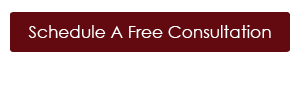10 Habits of Highly Unsuccessful Executives and How To Be One
 Want to be a highly unsuccessful executive? Then follow this simple 10-step guide for guaranteed results. Try to keep these valuable tips to yourself. You don’t want slackers catching on to your tricks of leading the lifestyle you have(n’t) worked so hard to achieve.
Want to be a highly unsuccessful executive? Then follow this simple 10-step guide for guaranteed results. Try to keep these valuable tips to yourself. You don’t want slackers catching on to your tricks of leading the lifestyle you have(n’t) worked so hard to achieve.
1. Be Lazy, Undisciplined and Watch A Lot of TV
If you ever get the urge to do some useful work like marketing your business, immediately get a beer, find 10 or 20 new channels to explore and you will enjoy instant gratification.
2. Keep Your Goals to Yourself & Never Share Them With a Professional Coach
No matter what, don’t tell anyone about your plans or goals, especially a successful executive or professional coach. There is a time-proven axiom that states the following: the fewer people who know your plans, the easier it is to slime out of any commitment. Like the tree that falls in the forest, if no one knows about it, then it doesn’t exist. You will feel so much better.
3. Eat Poorly and Rarely Workout
You’ll always have the excuse that you’re not well enough to do what you said you would. There is a little-known scientific fact that for every ten times you don’t go to the gym, there is a 10% less chance of keeping your word.
4. Associate with Poor Character Individuals
Steer clear of do-gooders who are constantly striving for personal and professional development and seem to have the need to challenge you to improve yourself in some way.
5. Aim Low and Don’t Set Expectations
If by some chance you make the mistake of creating goals, or possibly even a strategic plan, by all means aim low and do not have any hope or expectation of producing results. Expectations are just premeditated resentments, thus, complete lack of them will kick start you on your way to true enlightenment and happiness.
6. Don’t Give a Damn About Anything
Really caring about people, the world, such as climate change or feeding the poor are a waste of your precious time and you can’t do anything about it anyway.
7. Hire People to Do Everything For You
Like royalty, have someone prepare your toilette, change the TV channels, cook and even eat your meals. Let someone else do the heavy lifting. Why do anything at all when you could be creating jobs.
8. Don’t Forget the Importance of Negative Psychology
You need to have a constant sound track of negative self talk; “I can’t do this”, “I don’t have enough time”, “I don’t deserve it” and “I am not good enough” are a few time-honored favorites. The opportunities to talk yourself down are endless. If some executive coach tries to tell you it’s not the truth, find someone else. The beauty is, the more you engage in this behavior, the more you will get what you want.
9. Procrastinate
If you notice, very successful professionals are constantly active. The key to being an ineffective professional is to employ procrastination at every turn. If you have the impulse to activate, generate or innervate, immediately take a nap or read the NY Times cover to cover. Never do today what can be put off indefinitely.
10. Finally, Employ the pièce de résistance of Executive Ineffectiveness: The Big Lie
When caught in the web of confronting the truth about not keeping your commitments, you can always rely on simply denying you ever said what you said you would do. The mysterious wonder about lying is that if you repeat the lie often enough it miraculously turns into the truth. So, remember, when all else fails, lie through your teeth till you believe it yourself.
Whether you are seeking career coaching or business growth I hope you enjoyed this cheeky blog and hope it will help you conduct your life in a truly ineffective manner.
If you like this blog post and if you are serious about change and are willing to commit time and resources, drop me a line.
I offer a free sample session that will help you clarify your goals, identify challenges, and set you on an instant action plan toward success.
WANT MORE COACHING?
ARE YOU SERIOUS ABOUT CHANGE? THEN LET’S TALK.
Your Free Consultation Includes:
- A clarification of your goals and challenges
- A quick self assessment to help you understand where you stand on important issues
- A discussion about next steps to help you achieve your business, career or life vision
 associates, inc.
associates, inc.
